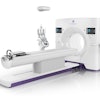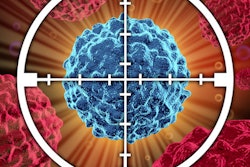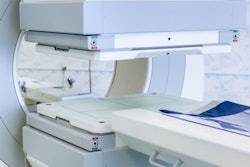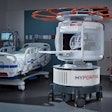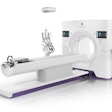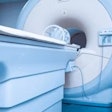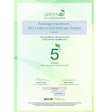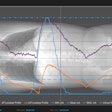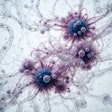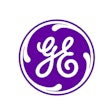
A hospital in Alabama, U.S., saw an 80% drop in the volume of SPECT myocardial perfusion imaging (MPI) studies during the peak of the COVID-19 pandemic in spring 2020 as patients postponed nonessential procedures.
Compared with 2019, the volume of SPECT-MPI dropped by more than 80% during the peak of the pandemic in March and April 2020 at the University of Alabama at Birmingham, researchers reported in the retrospective study published on 8 January in the European Journal of Nuclear Medicine and Molecular Imaging.
While the drop in studies was dramatic, the researchers didn't find a shift in the rate of abnormal SPECT-MPI exams -- a shift they had expected to see, according to a team led by Dr. Fadi Hage, a cardiologist at the university.
"We hypothesized that due to the highly restricted availability of testing, only high-yield patients will undergo SPECT-MPI, while those expected to be normal would be delayed," the authors wrote. "However, we did not find any statistically or clinically significant increase in the rate of abnormal SPECT-MPI or that of myocardial ischemia during this period."
The study was conducted to assess the impact of the coronavirus pandemic on SPECT-MPI utilization. Along with declines in other healthcare sectors, the volume of medical imaging studies performed has taken a hit during lockdowns designed to prevent transmission of the SARS-CoV-2 virus. One study found that CT lung cancer screening volume was down by almost 75% during the pandemic, while the rate of malignancies/positive screens rose by more than 250%.
In the new study, Hage et al theorized that the patients getting SPECT-MPI during the pandemic would be at higher risk of a poor prognosis, which would translate to a higher percentage of abnormal results for 2020 compared with 2019. This would be in contrast with a decline in the percentage of abnormal results that has occurred in recent years, a trend attributed to imaging of lower-risk patients.
Hage et al pointed out that restrictions on the use of SPECT-MPI during the pandemic followed guidance from the American Society of Nuclear Cardiology and the Society of Nuclear Medicine and Molecular Imaging. The guidance advised that all nonurgent SPECT-MPI studies be postponed, which "resulted in significant restrictions," nationally, the authors noted.
For the study, researchers compared results for 210 patients who underwent SPECT-MPI in March and April of 2020 with outcomes drawn from 1,106 who had SPECT-MPI in a similar time period the previous year. Their analysis included a review of referral patterns and on the use of telemedicine as opposed to in-person assessments leading to imaging studies.
"During the pandemic, there was a national and international surge in the use of telemedicine to evaluate patients remotely without face-to-face contact using technologies (audio and/or video conferencing) that have not been utilized on such a wide scale previously," the authors wrote.
For the periods studied pre- and peak-pandemic, SPECT-MPI volume at the hospital fell from 553 per month to 105 per month -- that is, a drop of 81% from baseline. And the proportion of abnormal results for the baseline period was 31% at baseline, compared with 27% at the peak of the pandemic, not a statistically significant difference, Hage and colleagues reported.
The rates of the following types of abnormal findings were roughly the same for the two cohorts studied, the authors explained, for conditions including abnormal myocardial perfusion, moderate-large perfusion defects, myocardial ischemia, myocardial scar, and abnormal left ventricular ejection fraction.
As for referral patterns, they found that the likelihood of an abnormal result was not affected by whether an assessment had been carried out via telemedicine or a face-to-face visit.
"We also noted a significant shift in the indication for SPECT-MPI during the pandemic from baseline," Hage et al wrote. "Significantly more studies were performed for symptom evaluation, and [fewer] studies were done for pre-operative evaluation which corresponded to a change in the referral pattern favoring studies referred by cardiology and primary care or internal medicine vs. transplant services."
Patients referred by cardiologists were twice as likely (40% compared with 20%) to have an abnormal result, a statistically significant result, the authors noted.
Hage et al concluded that it "remains difficult to predict which patients will have abnormal SPECT-MPI even when providers and stress laboratories are forced to prioritize the performance of studies to high-yield patients."


